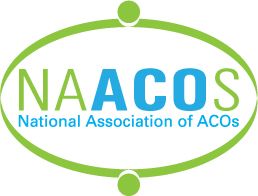
CMS Leaders Describe Their Partnership to Align Programs, Address ACOs’ Concerns

As CMS’ suite of value-based and accountable care models evolves, leaders from across the agency detailed how they are working together to streamline quality reporting and encourage the move to a population health mindset while addressing providers’ concerns.
CMS’ array of value-based care programs has expanded and evolved significantly, making it essential for its various centers and initiatives to cooperate on accountable care organization (ACO) programs and other value-based models, according to leaders who spoke at a fireside chat to kick off the spring 2024 conference of the
Session moderator Clif Gaus, ScD, president and CEO of NAACOS, kicked off the event by announcing that he will be leaving the association this fall to pursue semi-retirement. In the 12 years since he founded NAACOS, the size and complexity of ACO programs have grown tremendously, and the evolution shows no signs of slowing, as CMS has set a goal that by 2030 all Medicare fee-for-service beneficiaries will be in a care relationship that is accountable for quality and total cost of care. He asked the panelists to discuss the progress on the goal and how their divisions are working toward it.
According to Meena Seshamani, MD, PhD, deputy administrator and director of the Center for Medicare, there are 3 aspects to growth in accountable care in Medicare: (1) understanding barriers and opportunities through feedback from organizations, which has provoked changes like expanding attribution-eligible providers to nurse practitioners and physician associates; (2) partnering with CMMI to scale up promising ideas, such as advance investment payments to fund the infrastructure that practices will need to succeed in the Medicare Shared Savings Program (MSSP); and (3) collaboration with CCSQ to build a foundation for practicing with a population health mindset, as evidenced by how community health worker and care navigation services are now payable in Medicare.
Dora Hughes, MD, MPH, acting chief medical officer and acting director of CCSQ, agreed that the key is alignment across CCSQ, Medicare, and CMMI. CMS’ value-based strategy released in 2022 highlighted variability across programs, so alignment is a major area of focus, including making sure that quality measures are the same across the centers, which will make participation easier for programs and enable better performance assessment.
Adding consensus to the importance of cooperation was Liz Fowler, PhD, JD, deputy administrator and director of CMMI, who said that MSSP or CMMI models on their own can’t reach the 2030 goal, but working together they see the possibility. For example, the Primary Care Flex model is an example of taking an innovation from the ACO Realizing Equity, Access, and Community Health (REACH) Model and bringing it into MSSP. There are “opportunities for those looking to take on more and do more,” she said.
Seshamani agreed that lessons learned from CMMI models are incorporated into those scaled up into MSSP, as are learnings gleaned from ACO administrators and clinicians. Some challenges she’s heard from providers include the confusion and burden of quality metrics, issues with cash flow that prevent investment, and simply the unfamiliar nature of value-based care compared with how they learned to practice medicine. But by working across centers and learning from the ACO community, there are areas to grow in “caring for people in a more holistic way.”
CCSQ fits into this puzzle by setting CMS’ priorities for quality measurement and improvement, and Hughes mentioned her excitement that Medicare codes and reimbursement are now in place for quality reporting. The center has been very intentional in choosing quality benchmarks and considering the implications for each model, she said. All 3 panelists agreed that the CMS Physician Fee Schedule is crucial for providing a launching pad into value-based care, rather than serving as a landing spot to stay in fee-for-service.
Gaus raised an issue of concern for the audience of ACO leaders: anomalous billing for durable medical equipment (DME) such as catheters, which could potentially represent fraud. He read aloud a comment from NAACOS’s listserv in which an ACO from Arizona detailed a massive spike in expenditures billed by a certain company, and he described ACOs as “the canary in the mine” since their scrutiny of their finances to ensure shared savings allows them to detect suspicious billing practices early and report them to the appropriate agencies.
An audience member from Palm Beach ACO emphasized that the problem of DME erroneous billing is vast and serious and asked the panelists to address it with higher urgency. Fowler and Seshamani agreed that they are grateful to ACOs for bringing this issue to their attention and they are planning on an aligned approach across CMMI and Medicare.
Another area garnering attention is the challenges around quality reporting, which Hughes noted that CCSQ is addressing by streamlining sets of measures across programs. She acknowledged that this is no easy task, saying it “will require new systems built and infrastructure,” but it is one to which CMS has committed internally.
Newsletter
Stay ahead of policy, cost, and value—subscribe to AJMC for expert insights at the intersection of clinical care and health economics.








